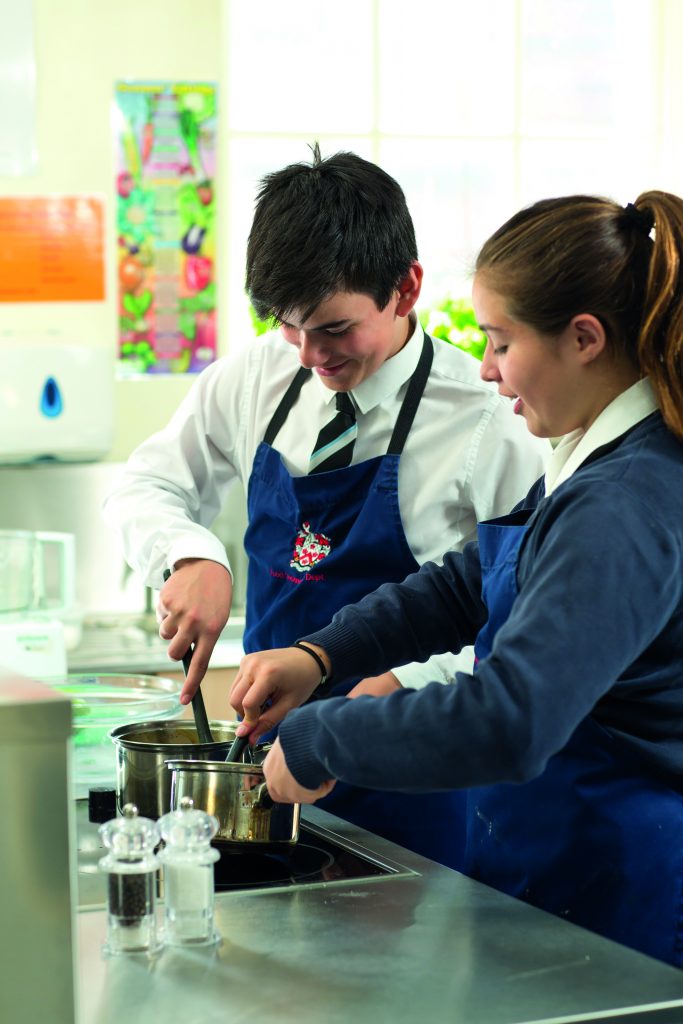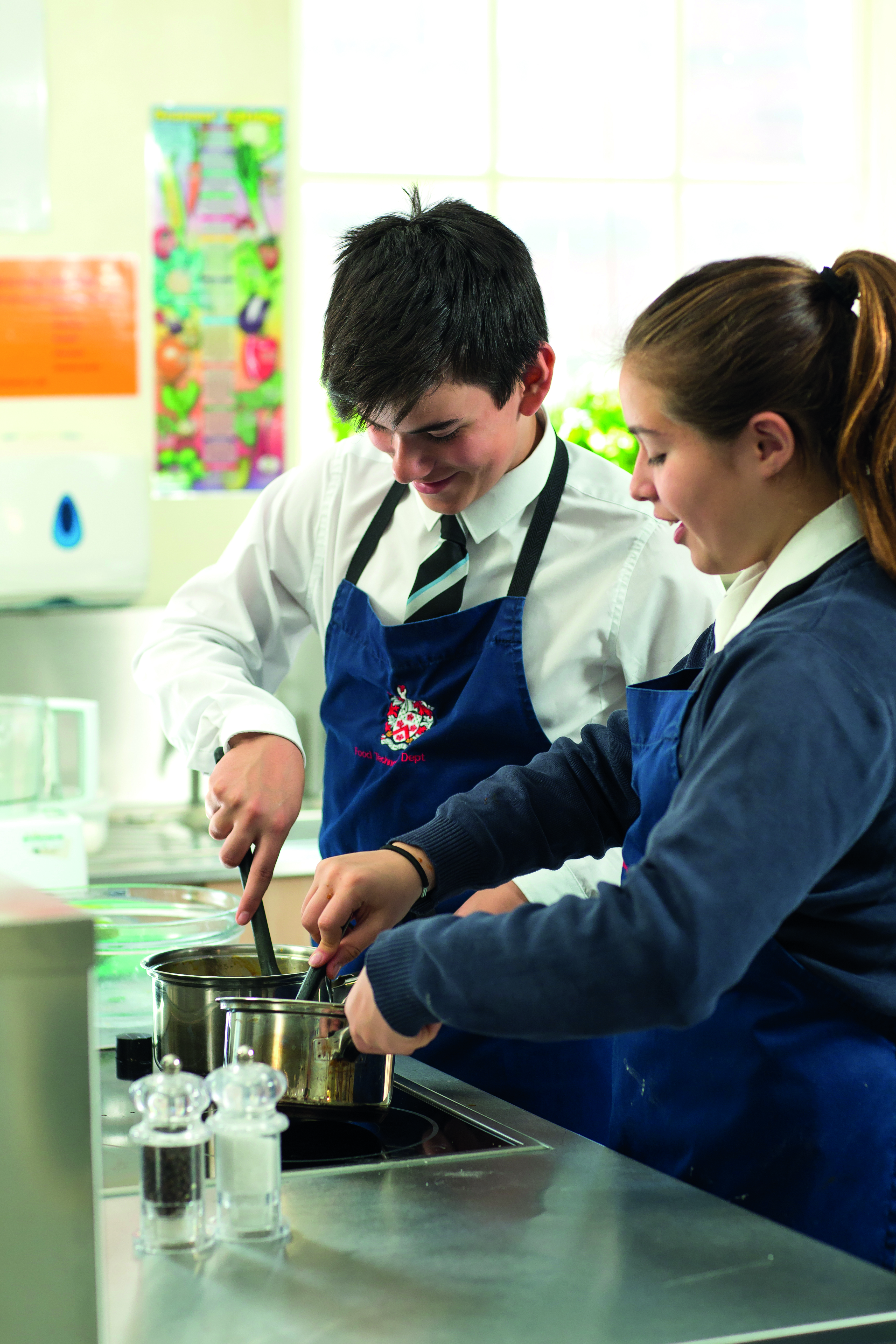
James Sharp, Head of Food and Nutrition at Alleyn’s School, talks about teaching young people the importance of healthy eating.
Statistics from Public Health England state that nearly two thirds of adults and a third of 10 -11 year olds are overweight and we know that young people are becoming overweight earlier and staying overweight longer. The eating habits our children form now can last well into adult life and have profound and long term effects on their future health, so developing healthy attitudes to nutrition while they are young is fundamental to maintaining their emotional, physical and academic well-being.
Bring food prep to life
Schools can teach how good food choices have a positive effect on physical and mental health but research shows that nutrition education is most effective when it includes hands-on food preparation, i.e. children who receive practical lessons, at home as well as school, eat more fruit and vegetables. Cooking skills help children make healthy choices at all stages in life, but clubs, trips, competitions and family meals also have a role to play in your child’s enjoyment of food and the social bonding it can provide.
Informed choices
When they grow up our children will make their own choices about what to eat, and digital technology, home delivery services and the food industry can mean it is easy for them to become dependent on fast food. You can demonstrate the difference between fast foods and home-made food by making home-made equivalents of fast foods so that your child can taste how much sugar, salt and fat there is in the fast foods by comparison. Knowledge of good nutrition and being able to cook does not necessarily translate into healthy behaviour, but it does give young people an informed choice.
What you can do at home
- Cook with your children from a young age and encourage them to create a book of their favourite recipes.
- Keep fruit and vegetables out on the counter so children are more likely to snack on them.
- Encourage awareness of how and where foods are grown, and when they are in season.
- In the ‘tween-age’ years, help them develop a positive attitude to food by explaining the benefits of a good diet – healthier skin, hair, and more energy!
- Explain how healthy eating can support physical well-being by developing a strong skeleton, helping to stabilise emotions and increasing energy levels for physical activity.
- Make your teenager responsible for preparing one meal every week. They may need support doing it, but research shows they will make positive choices for their family and are more likely to go on to make healthier choices for themselves.
- Above all, remember that cooking is a creative and social activity!
Useful links:

